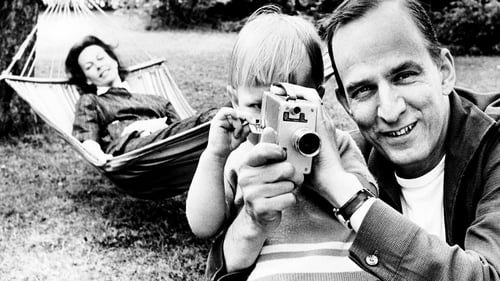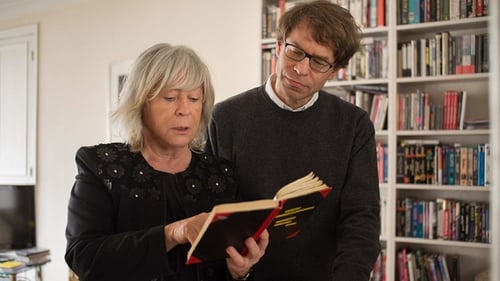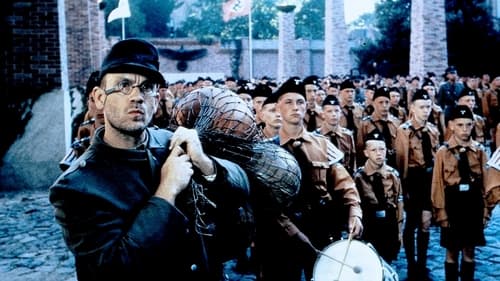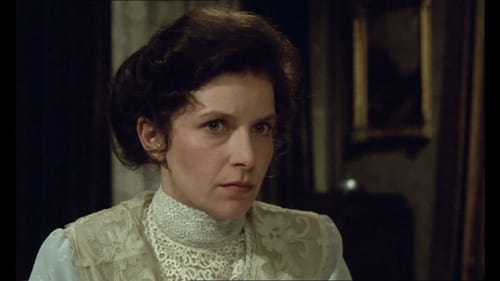Felix Moeller
Nacimiento : 1955-01-01, München, Germany

Producer

Writer
Un sentido relato de la vida personal y professional del gran cineasta sueco Ingmar Bergman (1918-2007) que explora su legado cinematográfico, con entrevistas a sus colaboradores más cercanos y a una nueva generación de cineastas.

Co-Director
Un sentido relato de la vida personal y professional del gran cineasta sueco Ingmar Bergman (1918-2007) que explora su legado cinematográfico, con entrevistas a sus colaboradores más cercanos y a una nueva generación de cineastas.

Himself
West Germany in the 1970s. Many artists, journalists and intellectuals were branded as sympathizers of Baader-Meinhof's left-wing terrorism. The parents of the director, too: Margarethe von Trotta and his stepfather, Volker Schlöndorff. With extensive archive materials and film clips as well as Margarethe von Trotta's private diaries the film portrays one German family and the society of the time.

Producer
West Germany in the 1970s. Many artists, journalists and intellectuals were branded as sympathizers of Baader-Meinhof's left-wing terrorism. The parents of the director, too: Margarethe von Trotta and his stepfather, Volker Schlöndorff. With extensive archive materials and film clips as well as Margarethe von Trotta's private diaries the film portrays one German family and the society of the time.

Writer
West Germany in the 1970s. Many artists, journalists and intellectuals were branded as sympathizers of Baader-Meinhof's left-wing terrorism. The parents of the director, too: Margarethe von Trotta and his stepfather, Volker Schlöndorff. With extensive archive materials and film clips as well as Margarethe von Trotta's private diaries the film portrays one German family and the society of the time.

Director
West Germany in the 1970s. Many artists, journalists and intellectuals were branded as sympathizers of Baader-Meinhof's left-wing terrorism. The parents of the director, too: Margarethe von Trotta and his stepfather, Volker Schlöndorff. With extensive archive materials and film clips as well as Margarethe von Trotta's private diaries the film portrays one German family and the society of the time.

Self
The majority of films made before World War II are missing. They have rotted, or destroyed accidentally or on purpose. Horror classics like LONDON AFTER MIDNIGHT might be gone forever. Many other films are presently in danger of decomposition. LOST EMULSION tells that story, and the story of film restoration. Discover the plight of the lost films like the Edison Frankenstein, the work of Theda Bara, Lon Chaney, Wallace Reid, Joan Blondell, Raoul Walsh and more. Learn firsthand what The Library of Congress is doing to preserve our film heritage.

Producer
Between 1933 and 1945 roughly 1200 films were made in Germany, of which 300 were banned by the Allied forces. Today, around 40 films, called "Vorbehaltsfilme", are locked away from the public with an uncertain future. Should they be re-released, destroyed, or continue to be neglected? Verbotene Filme takes a closer look at some of these forbidden films.

Writer
Between 1933 and 1945 roughly 1200 films were made in Germany, of which 300 were banned by the Allied forces. Today, around 40 films, called "Vorbehaltsfilme", are locked away from the public with an uncertain future. Should they be re-released, destroyed, or continue to be neglected? Verbotene Filme takes a closer look at some of these forbidden films.

Director
Between 1933 and 1945 roughly 1200 films were made in Germany, of which 300 were banned by the Allied forces. Today, around 40 films, called "Vorbehaltsfilme", are locked away from the public with an uncertain future. Should they be re-released, destroyed, or continue to be neglected? Verbotene Filme takes a closer look at some of these forbidden films.

Producer
Though almost forgotten today, Veit Harlan was one of Nazi Germany's most notorious filmmakers. His most perfidious film was the treacherous anti-Semitic propaganda film Jud Süß - required viewing for all SS members. This documentary is an eye-opening examination of World War II film history as well as the story of a German family from the Third Reich to the present; one that is marked by reckoning, denial and liberation.

Writer
Though almost forgotten today, Veit Harlan was one of Nazi Germany's most notorious filmmakers. His most perfidious film was the treacherous anti-Semitic propaganda film Jud Süß - required viewing for all SS members. This documentary is an eye-opening examination of World War II film history as well as the story of a German family from the Third Reich to the present; one that is marked by reckoning, denial and liberation.

Director
Though almost forgotten today, Veit Harlan was one of Nazi Germany's most notorious filmmakers. His most perfidious film was the treacherous anti-Semitic propaganda film Jud Süß - required viewing for all SS members. This documentary is an eye-opening examination of World War II film history as well as the story of a German family from the Third Reich to the present; one that is marked by reckoning, denial and liberation.

Writer
A documentary about the life of the actress Hildegard Knef.

Director
A documentary about the life of the actress Hildegard Knef.

Writer
The history of a family, in the film business now for three generations, behind and in front of the camera. The film is not only a foray through the history of this remarkable family, but also through the history of German film and contemporary history as well.

Director
The history of a family, in the film business now for three generations, behind and in front of the camera. The film is not only a foray through the history of this remarkable family, but also through the history of German film and contemporary history as well.

Self
The films, affairs and struggles of the iconic star of The Blue Angel as told by Rosemary Clooney, Roger Corman, Deanna Durbin and many more.

Researcher
El francés Abel Tiffauges es un hombre ingenuo que vive una vida sencilla trabajando como mecánico. Acusado falsamente de ser un pederasta, es reclutado como soldado al comienzo de la Segunda Guerra Mundial; pero pronto es capturado y llevado al corazón de la Alemania nazi.

República de Weimar (1919-1933). Una vez terminada la Primera Guerra Mundial (1914-1918), se produjeron en Alemania movimientos populares de protesta, al frente de los cuales se hallaban Rosa Luxemburgo y Karl Liebknecht, que fundaron un partido político revolucionario de carácter comunista: los espartaquistas.

Christof
Ruth, esposa de un célebre pacifista, tiene miedo de la gente. Olga, profesora de literatura y esposa de un exitoso director de teatro, conoce a Ruth durante unas vacaciones, y ambas se hacen amigas. Los hombres hablan, las mujeres escuchan, ignoradas por sus maridos...

República Federal Alemana, año 1968. Las hijas de un sacerdote, Marianna y Julianne, dedican su vida a luchar para cambiar la sociedad, reivindicando, por ejemplo, la legalidad del aborto. Sin embargo, eligen caminos muy diferentes para conseguir sus objetivos: Julianne, que es reportera, sigue una vía pacífica a través de la denuncia periodística. Marianna, en cambio, se une a una organización terrorista.

Tres miembros de un pequeño grupo terrorista atracan un banco para solventar los apuros económicos de un colegio infantil. Christa es la única que consigue huir de la policía, pero es perseguida tanto por el atraco como por su condición de terrorista. Pero lo peor es que el colegio no acepta el dinero que les ofrece y sus correligionarios no parecen dispuestos a ayudarla. Inesperadamente, encuentra comprensión y refugio en una joven que tomaron como rehén durante el atraco.

Director
Anti-Semitism is on the rise worldwide, driven to new extremes by the COVID crisis. This film documents the visual roots of this new anti-Semitism, taking a historical look at the visual propaganda of the Nazis.

Director

Writer




















